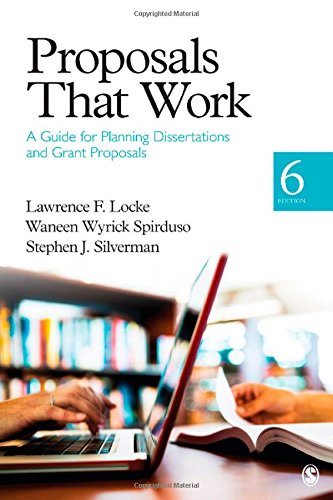图书简介
This handbook offers new arguments about the ways that dance improvisation informs understandings of history, socio-cultural conditions, lived experience, and technologies.
Introduction. Improvising Dance: A Way of Going About Things; Vida L Midgelow; Section 1: Life worlds and Ethics ; 1. Life Practices; Ann Cooper Albright; 2. Ethico-aesthetic practice of improvising: relations through motion; Fiona Bannon; 3. Reflections on dance improvisation and its dynamic interrelationship with everyday movement; Libby Worth; 4. A Philosophy of the Improvisational Body; Sondra Fraleigh; 5. Chance encounters, Nietzschean philosophy and the question of improvisation Philipa Rothfield; 6. Moving in medias res: Towards a phenomenological hermeneutics of dance improvisation; Nigel Stewart; Section 2: Attunement and Perception; 7. I notice that I’m noticingEL; Sally Doughty; 8. Embodied Consciousness in Improvised Performance; Nalina Wait; 9. ’Mass may be the single most important sensation’: Perceptual Philosophies in Dance Improvisation; Malaka Sacro-Thomas; 10. Rethinking Improvisation from a Daoist perspective of Qi-energy; I-Ying Wu; 11. Exploring Uncertainties of Language in Dance Improvisation; Louise McDowall; Section 3: Habit, Freedom and Resistance; 12. Improvisation and Habit; Gary Peters; 13. Unpredictable Maneuvers: Eva Karczag’s Improvised Strategies for Thwarting Institutional Agendas; Doran George; 14. Movements of freedom: performing popular liberty in the early cancan; Claire Parfitt-Brown; 15. Valorizing Uncertainty: Chance, Totalitarianism and Soviet Ballet; Janice Ross; 16. The Emancipation of Improvisation; Larry Lavender; Section 4: Memory and Transmission; 17. Improvisation and Argentinean Tango: On playing with body memories; Susanne Ravn; 18. Dancing Life; Norah Zuniga Shaw; 19. What Remains; Robert Bingham & Stephanie Hanna; 20. Improvisational Practices in Jazz Dance Battles; Jane Carr and Irven Lewis; 21. Twelve Days in Tarbena: an evolutionary approach to moving through silence and sound to speech in Ruth Zaporah’s Action Theater training; Robert Vesty; 22. Intention and Surrender; Stephanie Skura; Section 5: Agency and Transformation; 23. Transcending Boundaries: Improvisation and disability in dance; Sarah Whatley; 24. Artful humanising conversations: Improvisation in Early Years dance; Kerry Chappell and Lizzie Swinford; 25. Instinctive Connections: Improvisation as a research methodology in health and care settings; Lisa Dowler; 26. Somatic Sensing and Creaturely Knowing in the University Improvisation Class; Ali East; 27. Improvising Happiness: Belly Dance’s Evolution through Improvisation; Barbara Sellers Young; Section 6: Interconnectivity, emergence and technologies; 28. Dancing the Interface: Improvisation in Zones of Virtual Exchange; Thomas DeFrantz; 29. Programmed Improvisation Inspied from Autonomous Humanoids; Amy LaVeirs; 30. Contact Improvisation and Embodied Social Cognition; April Flakne; 31. Modelling Improvisation as Emergence: A Critical Investigation of the Practice of Cognition; Colleen Dunagan, Roxane Fenton, and Evan Dorn; 32. Towards a cognitive theory of joint improvisation: The case of tango argentino; Micheal Kimmel; Section 7: Ecology and Environments; 33. Improvisation and the Earth: Dancing in the Moment as Ecological Practice; Tamara Ashley; 34. Dancing the Land: An Emerging Geopoetics; Melinda Buckwalter; 35. Scoring and Siting: Improvisatory Approaches to Site-Specific Dance; Victoria Hunter; 36. The Dancer, the Philosopher and the Tramp; Hilary Elliot; 37. Audience Improvisation and Immersive Experiences: the sensuous world of the body in the work of Lundahl & Seitl; Josephine Machon; Section 8: Techniques, Strategies and Histories; 38. Lost in the Footlights: The Secret Life of Improvisation in Contemporary American Concert Dance; Kent De Spain; 39. In the Moment: Improvisation in Traditional Dance; Anthony Shay; 40. Playing with the Beat: Choreomusical Improvisation in Rhythm Tap Dance; Allison Robbins & Christopher J. Wells; 41. Moving Sound: New Relationships between Contemporary Dance and Music in Improvisation; Anna Sanchez Colberg & Dimitris Karalis; 42. Mens Agilis Corpore Agili; Ivar Hagendoorn; 43. EmbodiologyRG: A Hybrid Neo-African Improvisation-as-Performance Practice distinguished by Dynamic Rhythm; Sheron Wray
Trade Policy 买家须知
- 关于产品:
- ● 正版保障:本网站隶属于中国国际图书贸易集团公司,确保所有图书都是100%正版。
- ● 环保纸张:进口图书大多使用的都是环保轻型张,颜色偏黄,重量比较轻。
- ● 毛边版:即书翻页的地方,故意做成了参差不齐的样子,一般为精装版,更具收藏价值。
关于退换货:- 由于预订产品的特殊性,采购订单正式发订后,买方不得无故取消全部或部分产品的订购。
- 由于进口图书的特殊性,发生以下情况的,请直接拒收货物,由快递返回:
- ● 外包装破损/发错货/少发货/图书外观破损/图书配件不全(例如:光盘等)
并请在工作日通过电话400-008-1110联系我们。
- 签收后,如发生以下情况,请在签收后的5个工作日内联系客服办理退换货:
- ● 缺页/错页/错印/脱线
关于发货时间:- 一般情况下:
- ●【现货】 下单后48小时内由北京(库房)发出快递。
- ●【预订】【预售】下单后国外发货,到货时间预计5-8周左右,店铺默认中通快递,如需顺丰快递邮费到付。
- ● 需要开具发票的客户,发货时间可能在上述基础上再延后1-2个工作日(紧急发票需求,请联系010-68433105/3213);
- ● 如遇其他特殊原因,对发货时间有影响的,我们会第一时间在网站公告,敬请留意。
关于到货时间:- 由于进口图书入境入库后,都是委托第三方快递发货,所以我们只能保证在规定时间内发出,但无法为您保证确切的到货时间。
- ● 主要城市一般2-4天
- ● 偏远地区一般4-7天
关于接听咨询电话的时间:- 010-68433105/3213正常接听咨询电话的时间为:周一至周五上午8:30~下午5:00,周六、日及法定节假日休息,将无法接听来电,敬请谅解。
- 其它时间您也可以通过邮件联系我们:customer@readgo.cn,工作日会优先处理。
关于快递:- ● 已付款订单:主要由中通、宅急送负责派送,订单进度查询请拨打010-68433105/3213。
本书暂无推荐
本书暂无推荐















